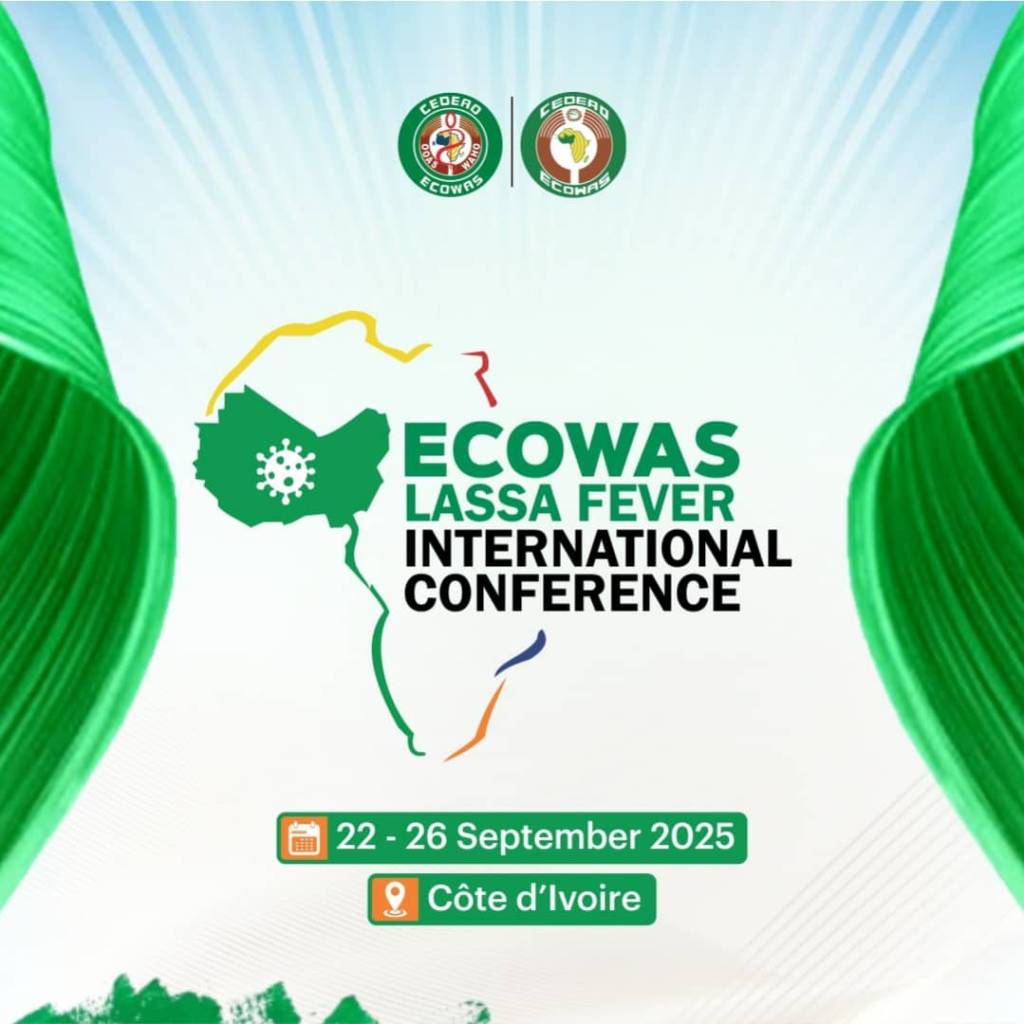Abidjan, Côte d’Ivoire, is this week hosting the 2025 ECOWAS Lassa Fever International Conference (ELFIC), bringing together scientists, policymakers, donors, and community leaders to step up West Africa’s fight against epidemics.
Organised by the West African Health Organisation (WAHO), the four-day event is themed: “Beyond Borders: Strengthening Regional Cooperation to Combat Lassa and Emerging Infectious Diseases.” It focuses on vaccine acceptance, innovation, and cross-border collaboration.
Why It Matters
Since the maiden ELFIC in Abuja in 2019, West Africa has faced Ebola, COVID-19, and Mpox each proving that no country can fight epidemics alone.
Lassa fever, first identified in Nigeria in 1969, remains a persistent threat. The World Health Organisation (WHO)estimates 100,000–300,000 annual infections and about 5,000 deaths. Nigeria alone recorded more than 8,000 confirmed cases and 1,500 deaths between 2018 and 2024. Outbreaks also occur in Liberia, Sierra Leone, Guinea, and more recently Ghana.
Challenges Highlighted
- Vaccine hesitancy, fuelled by mistrust and misinformation.
- Weak healthcare systems, making communities suspicious of emergency-only interventions.
- Historical distrust, worsened by past controversies such as the Pfizer meningitis trial in Nigeria.
Experts called for stronger partnerships with religious leaders, local influencers, and youth groups to build trust and counter misinformation.
Call to Action
WAHO Director General, Dr. Melchior Athanase J. C. Aïssi, urged the region to act decisively:
“This conference is a call to action to confront the challenges of Lassa fever by advancing research, diagnostics, and community-led solutions, while enhancing preparedness for zoonotic diseases.”
Looking Ahead
Beyond research, ELFIC 2025 is pushing for sustained financing, political will, and community-led preparedness systems. Organisers stressed that West Africa must not repeat the mistakes of Ebola, COVID-19, or Mpox, where delayed responses and poor access to vaccines cost lives.

